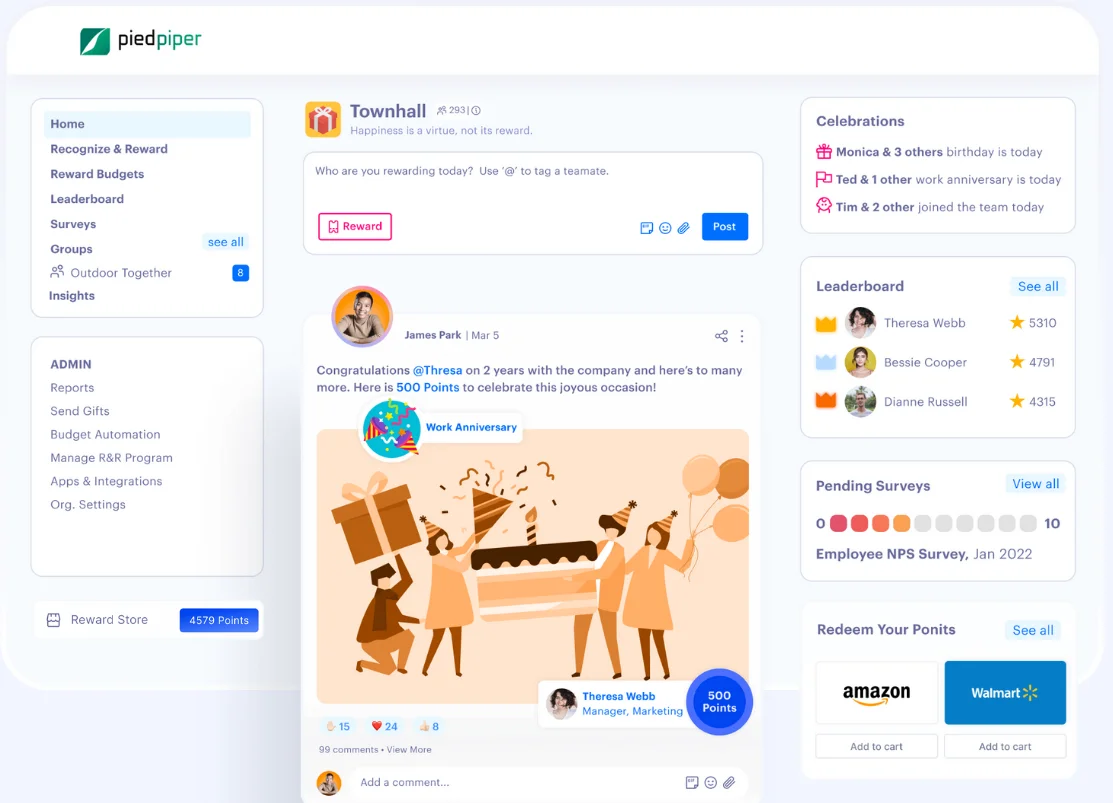Table of Contents
High-performing reps possess a diverse set of sales skills that span across areas such as subject expertise, technology, communication, and buyer engagement. In the trade, the expression “They’re a born salesperson” is often used to describe people with outstanding skills in selling. While it’s true that some are naturally better than others in sales roles, the difference boils down to various degrees of hard skills, soft skills, and specialist skills. In this article, we’ve broken down the skill sets salespeople need to perform their role adequately and even exceed their current limits.
11 Essential Sales Skills Every Salesperson Should Learn
The sales representative skills discussed in this section can mostly be divided into hard and soft skills. Hard skills are skills that can be measured, such as reading, writing, and technology proficiency. Soft skills are hard to measure and have to do with skills such as communication, persuasion, and leadership. The specialist skills have to do with the skill set particular to a sales rep pertaining to their role. Hard skills can be:
1. Product knowledge and subject matter expertise
Product knowledge and subject matter expertise are probably the most important skills all sales reps need to have. Customers are bound to ask detailed questions pertaining to the product, and knowing the intricacies is essential to delivering a strong pitch. Savvy customers are also well-versed with what to expect and can tell when a sales rep is feeding them a line of nonsense. According to a survey cited in Forbes, 89% of customers end up feeling frustrated when questions about products are asked to be repeated to multiple reps. Through comprehensive product training, sales reps can confidently pitch their products and field any question thrown at them.
2. Storytelling skills
Human beings have a natural tendency to gravitate to well-narrated stories. When it comes to sales, a simple story that captures the essential elements of the product and its use cases can often paint a better picture than a pitch. A good story works by:
- Simplifying complicated concepts
- Builds rapport with the prospect by appealing to their emotions
- Highlighting the unique selling proposition
- Answering the question of how the prospect might find it useful
- Persuading the prospect to take action
While stories are powerful selling tools, the appeal depends on the sales representative skills in storytelling. A fine example of storytelling was a pitch by Aaron Krause on Shark Tank in 2012. His product- a reusable smell-resistant sponge with a smiley face etched into it, was demonstrated so well with a relatable story by Aaron that his company Scrub Daddy received USD200, 000 from Lori Greiner. The company has made more than USD 209 million in sales since it was launched.
3. Business communication
Salespeople need to have excellent communication skills to build a rapport with their prospects. Part of what constitutes good communication is a strong grasp of business English, with the rest of it being how well they’re able to get their thought across. Good business communication skills are also needed to ask the right question at the right time. For example, if a prospect is unwilling to say yes, a skilled salesperson should be able to recognize the cause behind their hesitation. It’s possible they’re not ready for the offer, looking to negotiate further, or maybe haven’t understood the product’s value. Instead of forcing the product/service on them, a skilled salesperson finds a way to turn it around by asking the right questions. Business communication is also essential for cold calling prospects, especially during a period where it’s going out of style.
4. Active listening skills
Communication is a two-way street. Active listening involves paying attention to what is being said in an open manner and responding with the right body language and gestures that indicate a reciprocal interaction. It has plenty of benefits, as genuinely listening to the prospects makes them feel heard, valued, and respected. Here are some basic active listening techniques:
- Making eye contact with the prospect while they speak to “listen with the eyes”.
- Maintaining open body language: involves leaning in, while listening, nodding to express agreement, smiling, and not crossing the arms or legs in a defensive posture.
- Avoiding the temptation to interrupt or interject with the benefits of the product too early.
- Repeating a point the prospect expressed for further clarification to stay on the same page.
- Asking questions when in doubt.
5. Emotional intelligence and empathy
Emotional intelligence (EQ) is the ability to understand and regulate one’s own emotions. It is also the ability to understand the emotions of others and respond accordingly. In general emotional intelligence help, people communicate better and even make decisions that have long-term benefits. A salesperson with a high EQ can quickly gain the trust of prospects and build relationships that are beneficial. With a high EQ also come empathy which is one of the most important traits needed to build long-term trust and partnerships. EQ and empathy in salespeople look like this:
- Listening to the prospect and caring for their issues.
- Being humble and unassuming.
- Putting the needs of the prospects first before themselves and their organization.
- Intuitively understand what the prospects need even before they speak up.
- Winning the hearts of the prospects and turning them into repeat customers.
6. Research skills
The ability to research clients, new features on the product, market, or associated tech is one of the most important sales skills examples that are often overlooked. Since the business landscape is always shifting, it is essential to keep up with new development, and knowing how to learn what matters can make all the difference. Whether it is using CRM or new sales management software, reps need to have the skills to quickly pick up information and apply it to their task. Researching efficiently is a hard skill that takes a while to master; however, it is a skill that can significantly improve the performance of sales reps.
7. Competitiveness and self-motivation
Sales reps are inherently competitive people who are always striving to become the top performers of the team. The competitiveness of salespeople is also dependent upon the type of motivation that drives them. There are two types of motivation:
Intrinsic motivation: The deep motivation that comes from within the individual that propels them to succeed. In the case of a sales rep, it could be the need to earn the top bucks, close the most sales or even become the rock star of the team.
Extrinsic motivation: The kind of motivation that drives people to perform well for a reward. While the top performers of the team are often intrinsically motivated, most are driven by compensation and incentives. Gamifying incentive programs can kick up extrinsic motivation by several notches and push the sales team's performance.
8. Resilience and grit
Sales often experience the higher turnover rates of all professions, with the recent estimates being 34% on average. Sales reps have to deal with rejections on a regular basis- they might have to call prospects who are on the fence and not receive calls back. Leads that don’t pan out are often demoralizing, especially after having spent the amount of time and energy on the pitch. Therefore one of the essential salesperson skills is perseverance in the face of knockbacks. Resilience and grit are attitudes that are intrinsic to people who have them in abundance; however, they can also be cultivated and applied in other areas as well.
9. Negotiation and objection handling
Sales negotiation is a delicate art that requires reps to pull together the rest of their sales skills in communication, subject matter expertise, empathy, and perceptiveness to strike a viable deal with a prospect. Like the rest of the hard skills, negotiation skills take time to hone and are one of the most significant factors in success. With hands-on practice and knowledge from expert books, sales reps can build their knowledge and skills in negotiation.
Objections are unavoidable in sales, and handling concerns when they arise can make the difference between a closed-won or closed-lost opportunity. As successful negotiators reps should be able to resolve objection without sounding pushy, preachy, or overbearing.
10. Social media and social selling skills
Social media is an integral part of most, if not all the businesses lately. Sales reps need to have a good grasp of different platforms as they can be put to great use in the form of social selling. Social media savvy reps can find prospects on different platform or keep a check on the pulse of their existing audience. The channels can be used effectively to engage with existing customers and boost sales by leveraging opportunities. Social selling is important salesperson skills today’s markets where market share can boil down to the pools of followers who accumulate on social media platforms.
11. Closing and post-sale relationship
Closing is the culminating moment in the sales cycle when the prospect finally makes a purchase. In the HubSpot’s State of Inbound Report, closing the deal is cited as the top priority by 75% of the companies. Salespeople need to master closing techniques along with maintaining post-sale relationship to maintain repeat customers. The building of a relationship occurs after closing the sales through continued support, loyalty discounts and long term value.
Closing Thoughts
With a good mix of hard and soft skills salespeople can reach the peak of their game. Although some skills might come naturally to the reps, others take years of practice to perfect. The salesperson needs to sharpen all of the skills mentioned above to improve their sales performance metrics. Mastering these skills also makes salespeople highly desirable for top employers across different industries. Finally, success can be said to come from intrinsic motivation, confidence and belief that is possible to achieve new heights everyday through steady practice and improvement.




